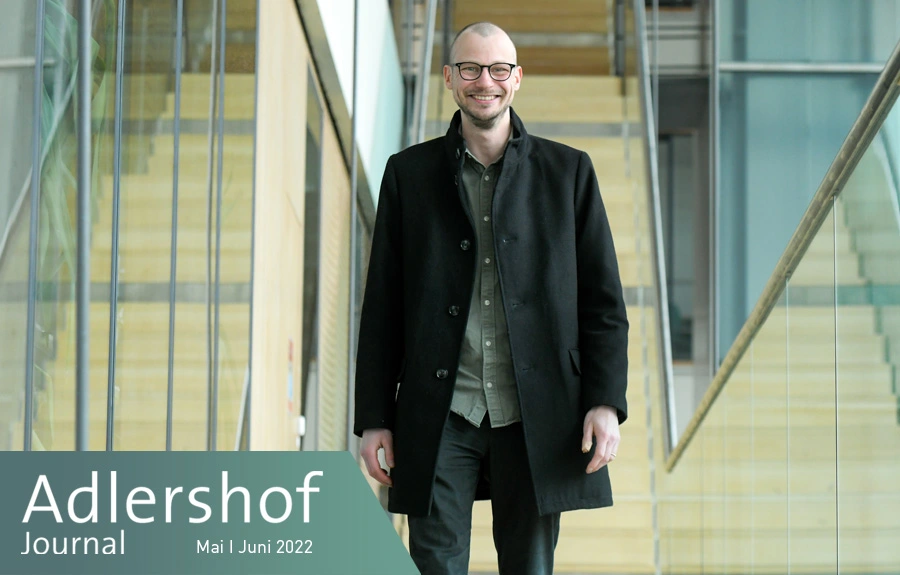In conversation with Axel Gutzmer
The trained plumbing and heating installer and graduate facility manager supervises two technology centres in the fields of biotechnology and environmental technology in Adlershof
As the head of the two Centres of Biotechnology and the Environment, Axel Gutzmer is responsible for a total of 80 companies with around 1,000 employees who work in the fields of medicine/biomedicine, pharmaceutics, biochemistry, chemistry, molecular biology, biophysics, bioinformatics, human biology, agricultural technology, nutrition science, food science, and bioanalytics. As a trained plumbing and heating installer and a facility management graduate, he takes care of all the needs of his companies regarding the spaces they rent and fosters extensive networking. He will host a network event on 22 June 2022, which will offer yet another opportunity for interdisciplinary exchange.
Adlershof Journal: You took over management of the Centres for Biotechnology and the Environment in January 2019. What has happened in those three years?
Axel Gutzmer: Both existing and new companies can grow in a healthy and sustainable way at the two Centres of Biotechnology and the Environment 1 & 2. There have been 150 expansions and we attracted ten new companies. We currently have no vacancies. The demand is huge, especially for laboratory spaces. We are therefore currently evaluating the refitting of one floor at ZBU 1, which would enable us to offer companies an additional 500 square metres in office and laboratory space. Some companies, including Scienion AG, JPT Peptide Technologies GmbH, and 3B Pharmaceuticals GmbH have now purchased plots of land in Adlershof, which are currently being developed and built on. I am particularly glad about that.
Which companies do you find particularly exciting?
Companies that are offering novel products, materials, and procedures through 3D printing are certainly worth mentioning here. Water analysis is also a topic for which there are exciting new start-ups. I also find it interesting when people think differently about existing and established products. We have a start-up that is looking to improve consumables, resulting in more safety for patients and caregivers. Sustainability is a huge topic: One of our companies is planning to refine single-use medical products.
What new developments do you expect in the biotechnology sector?
Medication against diabetes, Parkinson’s, dementia, and cancer can certainly be expected from medical biotechnology as well as state-of-the-art pharmaceutical research and development. They have the potential to improve the health of people and reduce suffering in the long term. In my view, biotechnology will also play a central role on our way to a sustainable circular economy.
How did “your” companies survive the coronavirus pandemic?
By and large, the bulk of our companies survived these uncertain times well. Naturally, constantly changing requirements and regulation from the government were a challenge. I am particularly “proud” of those companies who were directly involved in tackling the pandemic, for example, by supplying the World Health Organisation (WHO) with the components used to produce PCR tests in molecular biology, by contributing to the development of vaccines, or by setting up testing laboratories.
What was your personal experience of the past three years like?
Looking back, there were many projects and challenges that I was able to tackle together with the companies from the centres and my team. I am motivated by overcoming challenges in the interest of all those involved.
Peggy Mory for Adlershof Journal
